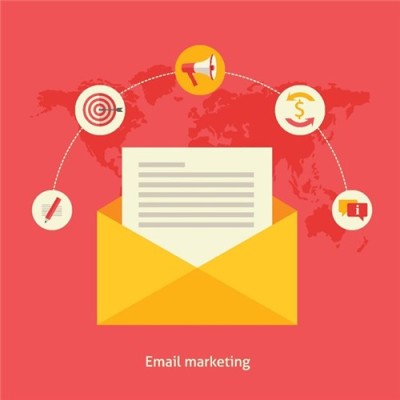
Did you know email marketing is 40 times more effective than using social media — Facebook and Twitter combined — to acquire new customers? 91% of all consumers in the United States still use email every day and email prompts purchases three times more often than social media, with an average order that’s 17% higher. With this kind of oomph, it’s critical to maximize your email marketing campaigns. Artificial intelligence and predictive analytics can help you do just that.
What is Artificial Intelligence?
Merriam-Webster defines artificial intelligence (AI) as “an area of computer science that deals with giving machines the ability to seem like they have human intelligence” and “the power of a machine to copy intelligent human behavior.”
One of the most stellar examples of AI is IBM’s Watson. “He” isn’t programmed, but learns — and isn’t a single computer, but a collection of “cognitive computer systems.” Watson is perhaps best known for competing on Jeopardy in 2011 where “he” went on to win $77,147. His human competition, Ken Jennings and Brad Rutter, known for their outstanding performances on the show, each finished with $24,000 and $21,600 respectively.
Watson has a number of practical uses, in business, healthcare, crime solving, and more. It continues to expand daily. 50% of customer service calls routed through call centers every day go unanswered, leading to unhappy customers and churn. Watson Engagement Advisor steps in to automate customer interaction and field questions with evidence based reasoning, allowing you to answer what your customer really needs.
How Artificial Intelligence Helps Email Marketing
According to AVA.ai, a lead interaction management software provider, AI-driven email conversations have an engagement rate of 50% or higher, compared to just 9% with the standard email autoresponder.
Using AI in email marketing simply means a platform handles the messaging for you. Sometime after a prospect visits your landing page and signs up for your email list, they get an email from your “sales assistant” that’s personalized and relevant. At specified intervals, the sales assistant sends another email, and will continue to do so, with variations on the message, to continue encouraging the prospect to action.
Once the prospect responds, even if they say something like, “I’m not able to make the decisions for this department, but I’ll put you in touch with my boss.” the AI is sophisticated enough to field the reply and respond accordingly, all while the prospect thinks he or she is interacting with a human. Your sales and marketing leads are qualified and sent to the appropriate human for follow-up, saving you time.
What is Predictive Analytics?
Predictive analytics uses both your past and current data to predict trends and outcomes. While it can’t tell you exactly what will happen in the future, it can forecast possibilities to help you develop a plan. Predictive analytics use customer data you have on hand, including buying persona, shopping behavior, and browsing history to forecast future actions and help you understand your customers better.
How Predictive Analytics Helps Email Marketing
With predictive analytics your business can:
Nurture leads through the funnel to sales. Through better list segmentation and more personalized messaging, predictive analytics can help improve sales conversions by moving key leads through the funnel to your sales department. You’ll get the right leads to the right place, and stop wasting time and money on leads that won’t convert.
Make improvements to buyer personas. With data from predictive analytics, you can improve buyer personas based on actions they’ve already taken, and actions they’re likely to take. The more you know about them, the better you can tailor your messaging to meet their needs.
Improve marketing spend ROI. Predictive analytics help you learn more about where your buyers are, so you can focus your marketing spend to connect with them on their social turf. You’ll be able to identify where your marketing spend has faltered in the past, to focus your resources where they’ll be most effective.
Marketing automation can save your business time, but unless it’s also helping to drive conversions with the use of AI and predictive analytics, it’s not necessarily boosting your bottom line. Your CRM holds a tremendous amount of data that can be harnessed by AI and predictive analytics to ensure you’re making the right moves, not just for your email marketing campaigns, but for your business as a whole.
At Insightly, we offer a CRM used by small and mid-sized businesses from a huge variety of verticals. Learn about all of Insightly’s features and plans on our pricing page or sign up for a free trial.



